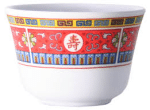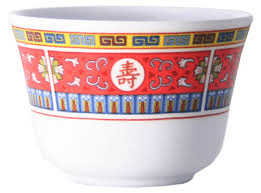A learned professor once sought out Japanese Zen master Nan-In. He told the master that he was well-read on Zen matters and did not need introductory lessons. He just wanted advanced instruction as to what should be done to attain enlightenment.
The master offered the visitor a cup of tea and began pouring tea into the cup. He continued pouring even after the cup had filled. Tea began to flow onto the floor as the master continued pouring.
The visitor asked why the master had not stopped when the cup was full. The master replied that the over-flowing tea cup was the visitor’s mind and no teachings could be received by that mind because it was already full.
“If you want to be my student so that you can receive teachings from me, you will first have to empty your cup,” said the master. The visitor, who had sharp karmic roots and understood what the master was saying, attained enlightenment at once.
If you saw Avatar, James Cameron’s 3-D movie, you may recall that the tribal people told the ex-Marine that he would first have to empty his cup before they could begin teaching him their ways. He said something like: “Oh, my cup is empty, that’s for sure.”
To empty the cup means to drop opinions, to admit that we know nothing. As Socrates said: “The only true wisdom is in knowing you know nothing.”
Socrates was no Buddha but he was close. He famously counseled his students to “Know Thyself.” As Hyon Gak Sunim says, Zen is all about answering the question: Who are you?
Until we come to grips with the fact that we have been behaving foolishly, our cup is not empty and we will continue our foolish ways regardless of how much we read about Zen.
The actual practice of Zen requires a threshold admission of past stupidity, i.e., emptying the cup.
If we refuse to empty our cup, we are just like our friend, the follower of Jesus who is a sniper and proud of it. As long as we refuse to empty our cup, we know nothing of Zen.
If we cannot admit that we have been following the path of selfhood, the satanic I-think-therefore-I-am path that leads to greater and greater levels of delusion, deeper and deeper ignorance, then we can’t get started on the path of awakening.
A clean break with superstitions and dogmas is required. A clean break with philosophical opinions or mind sets is required. We have to put our opinions down, i.e., relinquish them. That means we have to stop liking some things and disliking others.
But “empty the cup” goes even beyond that. We have a firm belief that two objects cannot occupy the same space at the same time. We believe we are a living entity on the third planet from a star. We even believe that gravity holds things down. All of these beliefs may be wrong.
Because, as Nagarjuna said, the mind is in reality, but reality is not in the mind. Our deepest beliefs are just bunk.
We can never take anything for granted. Read what the great scholar Stuart Lachs has pointed out about teachers, for example. Ironic, isn’t it, that Zen teaches students to question everything except authority, including the myth of the unbroken lineage from the Buddha to present day teachers.
We have to empty our cup of all mortal thoughts, including our deepest beliefs. Especially our deepest beliefs! Zen students are well-advised to enter into Zen with their eyes wide open.
Our senses do not deliver to us the truth, the whole truth, and nothing but the truth.
When we can drop our opinions about everything, absolutely everything, then we can truly be free of likes and dislikes, begin to cultivate wholesome states in every moment, every single moment regardless of what the apparent content of that moment might be, and leave behind forever the possibility of falling into the hell worlds of the tenth dharma realm.
The next time we become aware that we like something, or dislike it, we need to drop such unenlightened modes of thinking.
Both liking and disliking are unwholesome states.
There is nothing outside of us so there is nothing to sit in judgment upon, i.e., there can be no judge and no adjudged because there is no subject and no object. There are no two things.
Everything we think we know about the objective world is just baloney – mind stuff; mortal thoughts, unwholesome states. To empty the cup means to wake up to the reality that everything, absolutely everything, is not out there. There is no out there.
The belief that there is an “out there” is just an opinion, an unwholesome state of mind, to be dropped.
We Buddhists are not optimists who say the glass is half full or pessimists who say the glass is half empty. Both pessimism and optimism are unwholesome states.
We are realists who know that the famous glass is twice as big as it needs to be. Such thinking is neither pessimistic nor optimistic; it is wholesome and not the result of delusion.
The best way to empty the cup is to follow the advice of Shunryu Suzuki Roshi. Enter into each formal meditation sitting as if it is the very first time. Forget the past and start afresh, a beginner every time. What do we know? Nothing at all – Mu!

